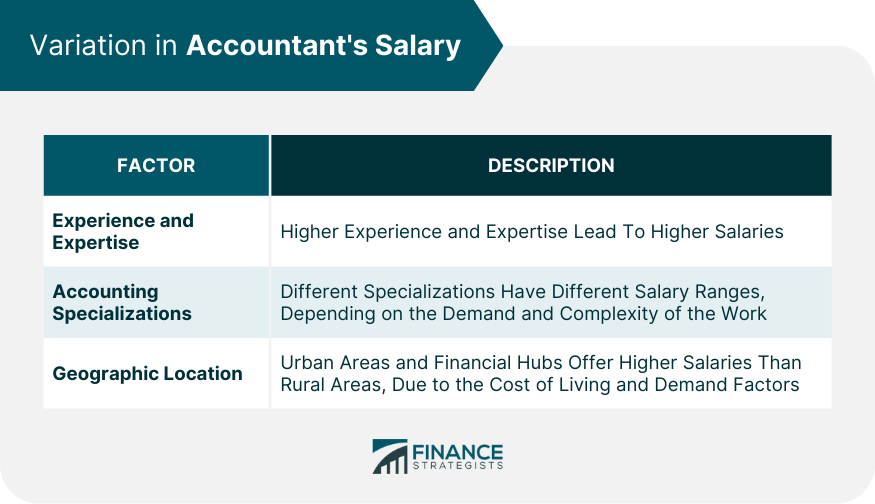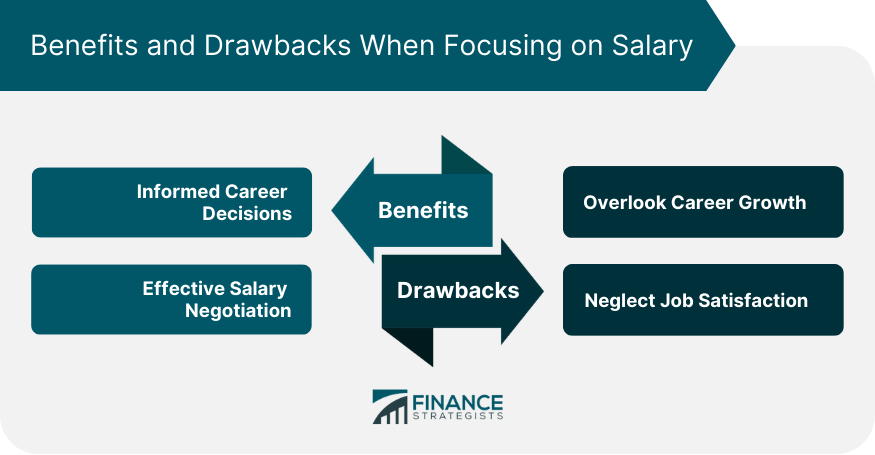In 2024, the salary of accountants varies significantly based on several factors, including their specialization, experience, location, and level of education. On average, entry-level accountants in the United States earn approximately $46,000 to $68,000 annually. For mid-level and senior accountants, the salary ranges between $60,000 to $85,000 and $66,000 to $110,000, respectively. Certified Public Accountants (CPAs) and those with advanced degrees or certifications generally command higher salaries. Geographic location also plays a crucial role, with accountants in urban areas and financial hubs earning more than those in rural areas due to higher costs of living and increased demand. These figures are averages, and actual salaries can deviate based on the aforementioned factors. The compensation of accountants increases as they gain more experience and expertise in the field. Entry-level accountants, who are at the start of their careers, generally earn less than their mid-level and senior counterparts. Mid-level accountants with several years of experience under their belt can expect a substantial bump in their salary. At the senior level, salaries are often significantly higher due to their high level of expertise, decision-making responsibilities, and strategic roles. Accounting is a diverse field with numerous specializations, each with its unique salary range. Public accountants often work for accounting firms serving multiple clients, and their salary depends on their level of expertise and the size of the firm. Management accountants, who work within a company to help leaders make financial decisions, generally earn more than public accountants. Government accountants employed by government agencies typically have a steady income, though it may be less than those in the corporate sector. Forensic accountants, who investigate financial fraud, and auditors, who examine financial statements for accuracy, often earn higher salaries due to the specialized nature of their work. The geographical location of an accountant can significantly impact their salary. Accountants in urban areas and financial hubs tend to earn more than those in rural areas due to the higher cost of living and increased demand for their services in these areas. Understanding the potential earnings in the accounting field can inform career decisions for both current and aspiring accountants. Knowledge of the salary range and progression provides a realistic picture of potential earnings, which can be a motivating factor and a guide in planning career moves. Awareness of the industry standard salaries helps during job offers and salary negotiations. Accountants who understand the industry norms and their worth can negotiate better compensation packages, leading to higher job satisfaction. While salary is an essential factor, it should not be the sole consideration in career decisions. Career growth and development opportunities, such as potential for promotion, learning opportunities, and job stability, are also crucial for long-term success. Focusing solely on salary can lead to overlooking other aspects of job satisfaction. Factors like work-life balance, workplace culture, job challenge, and alignment with personal interests and values also contribute significantly to job satisfaction and should not be ignored. Certifications such as CPA or Certified Management Accountant (CMA) often lead to higher salaries. These credentials showcase an accountant's commitment to their field and mastery of specific skill sets, thus making them more valuable to employers. The level of education can significantly impact an accountant's salary. While a bachelor's degree in accounting or a related field is the minimum requirement, a master's degree or a Ph.D. can boost earning potential. Additionally, degrees from prestigious universities or in-demand fields can further enhance an accountant's salary. Continued learning and gaining new skills can significantly enhance an accountant's value, leading to higher remuneration. Similarly, experience in the field is often directly proportional to the salary, with each additional year of experience potentially adding to an accountant's earning capacity. Pursuing further certifications can add credibility and demonstrate a commitment to professional growth, making an accountant more attractive to potential employers and clients. This, in turn, can result in a higher salary. Choosing a specialization that is in high demand or pays well can significantly increase an accountant's earnings. It's important to stay updated with emerging trends in the accounting industry and be ready to adapt to capitalize on lucrative opportunities. Accountants' salaries in 2024 vary based on experience, specialization, location, and education. Entry-level accountants earn $46,000 to $68,000, mid-level $60,000 to $85,000, and senior $66,000 to $110,000 annually. Certified Public Accountants (CPAs) and advanced degrees lead to higher earnings. Geographic location also plays a crucial role, with urban areas offering higher salaries. Understanding salary ranges helps make informed career decisions and enables effective salary negotiation. However, focusing solely on salary may overlook career growth and neglect job satisfaction. Certifications and education significantly impact salary, with higher credentials leading to higher earnings. Strategies to increase an accountant's salary include upskilling, gaining experience, obtaining further certifications, and choosing high-demand specializations. By considering these factors, accountants can enhance their earning potential and advance their careers in the dynamic financial landscape.How Much Do Accountants Make?
Variation in Accountants' Salary
Experience and Expertise
Accounting Specializations
Geographic Location

Advantages When Focusing Accountant's Salary
Informed Career Decisions
Effective Salary Negotiation
Potential Drawbacks When Focusing on Salary
Overlook Career Growth
Neglect Job Satisfaction

Influence of Qualifications and Certifications on Salary
Impact of Certification
Impact of Education Level
Strategies to Increase an Accountant's Salary
Upskill and Experience
Obtain Further Certifications
Select a High-Pay Specialization

Conclusion
How Much Do Accountants Make? FAQs
An accountant's salary is influenced by several factors, including their level of experience, education, certifications, and geographic location. Specializations, such as Certified Public Accountants (CPAs) or management accounting, also play a significant role in determining their earning potential.
Generally, accountants with advanced degrees, such as a master's or Ph.D. in accounting or a related field, can command higher salaries than those with just a bachelor's degree. Higher education often equips accountants with specialized knowledge and skills, making them more valuable to employers.
High-paying specializations include forensic accounting, where accountants investigate financial crimes, and management accounting, where they assist companies in financial decision-making. Additionally, roles as auditors and tax specialists tend to offer lucrative opportunities due to their specialized nature.
The geographic location of an accountant can significantly impact their salary. Accountants working in urban areas and financial hubs generally earn higher salaries than those in rural areas due to the higher cost of living and increased demand for their expertise.
Accountants can increase their earnings by pursuing further certifications, such as becoming a CPA or CMA, as these credentials enhance their credibility and marketability. Additionally, upskilling and gaining more experience in their field can lead to higher remuneration. Choosing a high-demand specialization and staying updated with industry trends can also contribute to higher earnings.
True Tamplin is a published author, public speaker, CEO of UpDigital, and founder of Finance Strategists.
True is a Certified Educator in Personal Finance (CEPF®), author of The Handy Financial Ratios Guide, a member of the Society for Advancing Business Editing and Writing, contributes to his financial education site, Finance Strategists, and has spoken to various financial communities such as the CFA Institute, as well as university students like his Alma mater, Biola University, where he received a bachelor of science in business and data analytics.
To learn more about True, visit his personal website or view his author profiles on Amazon, Nasdaq and Forbes.











